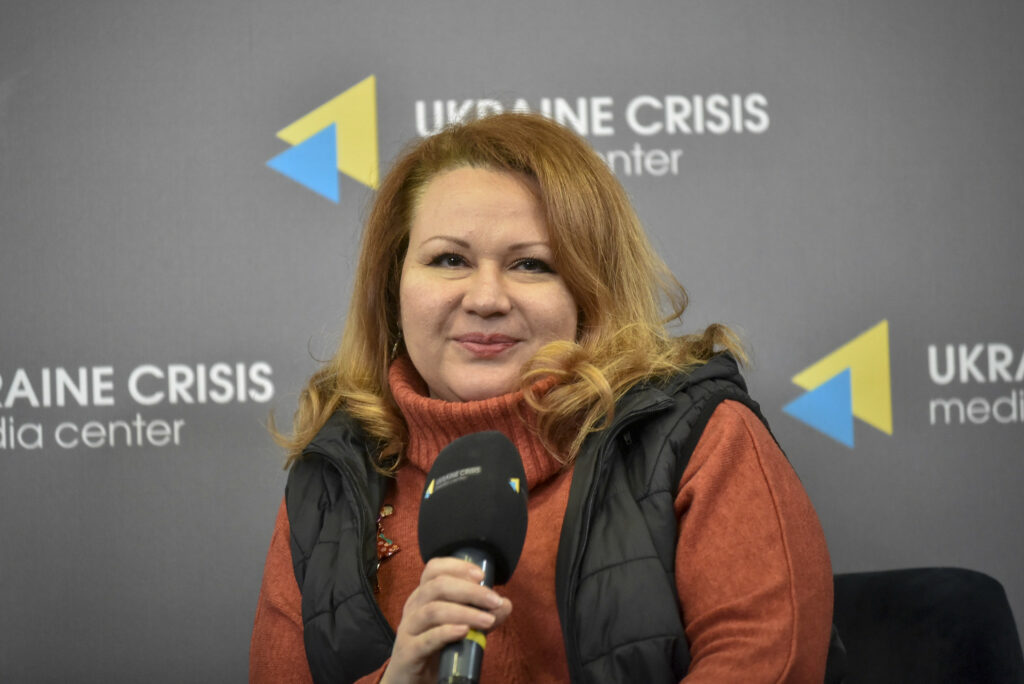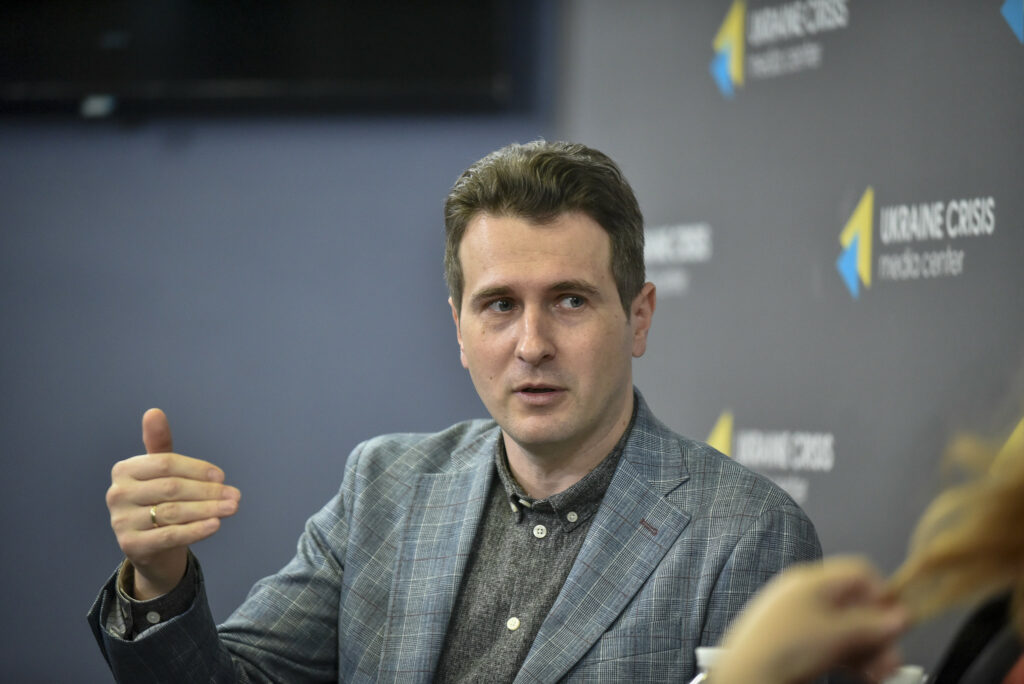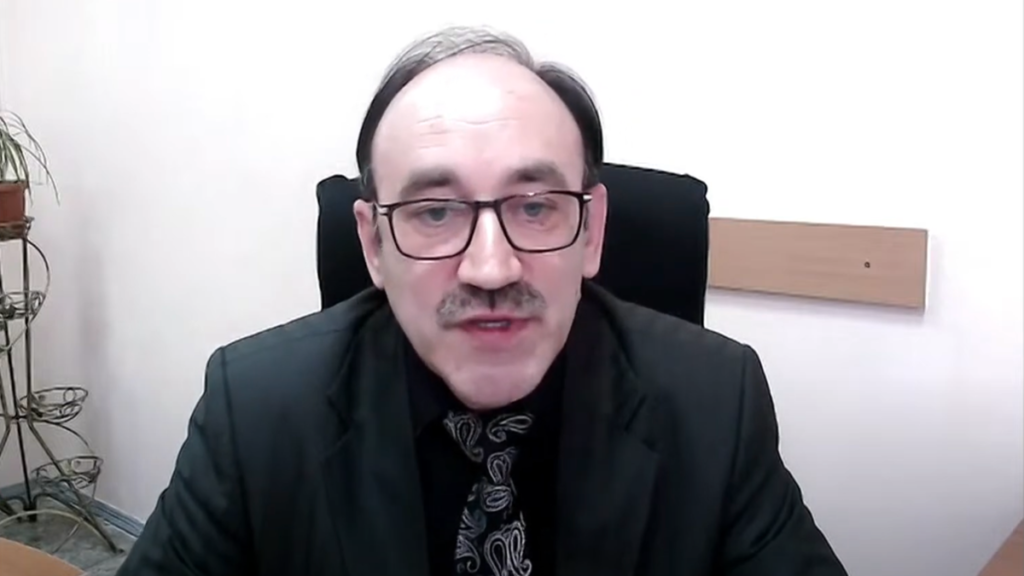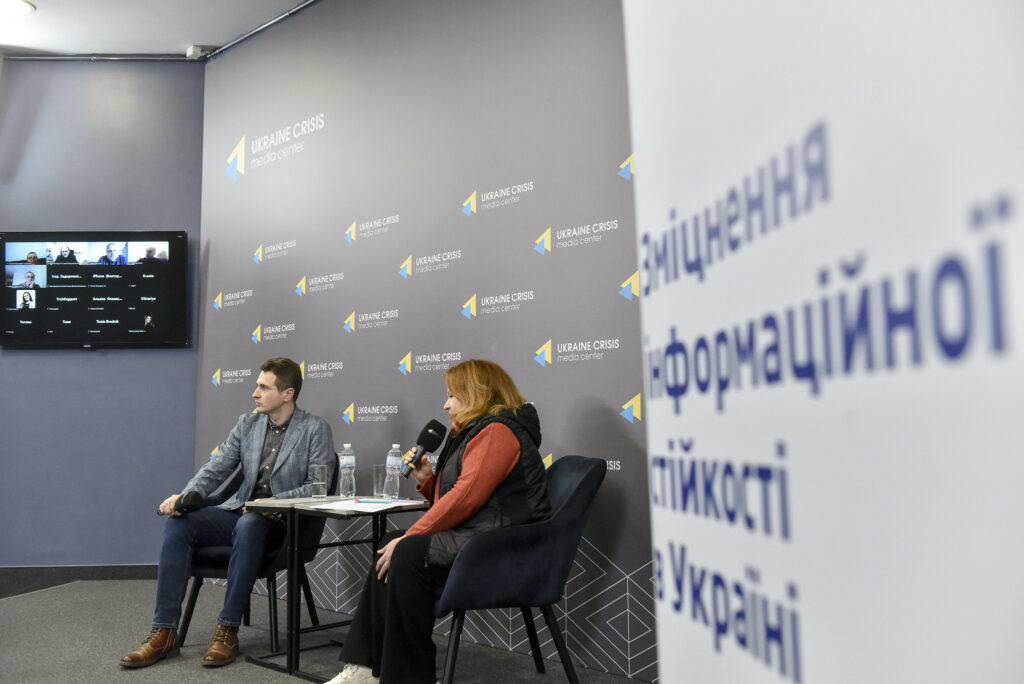As previously reported, the team of Ukraine Crisis Media Center, with the help of professional historians, journalists and opinion leaders, conducted research throughout nine regions of Ukraine on the nature and goals of pro-Russian myths that have been imposed on the population of these regions by Moscow propaganda for decades.
During another discussion on this topic, the participants spoke on how Russian propaganda manipulates the history of Kherson and Mykolaiv and how these myths are used to change the modern perception of these regions.
“Any empire dwells on other peoples’ territories. Any empire exists at the expense of the conquered. Any conquest is accompanied by the re-invention of what is acquired by the empire. At best, the indigenous people are left with toponymy,” Ms. Tetyana Kolosova, head of the UCMC press center, began the meeting with this quote from Pavlo Kazarin.
She noted that for centuries this system of destroying the Ukrainians’ self-identification has been working, and unfortunately, it continues to work now.
“For the most part, residents of both the free territory and the temporarily occupied territory of southern Ukraine are victims of these Russian myths and believe in this nonsense. And it’s even more unfortunate that in the Ukrainian Wikipedia you will get confirmation of some of these myths, because it is there that the dates of foundation of the cities that have been imposed on us are indicated. This research began with the fact that we discovered that not all people understand what the date of the city’s foundation is. And we realized that we needed to tell people about it,” explained Ms. Kolosova.
Mr. Ihor Stambol, PhD in History, coordinator of the UCMC press center, noted that this study was more journalistic than purely scientific. The researchers regarded public opinion and were guided by it.
Mr. Stambol called the idea that there was nothing before the Russians the most common myth.
“In none of the nine regions we studied did this opinion prevail. Our research is just an attempt to influence the audience in a new format, to convince them of what was really wrong. Working with students, I see that we really need new forms of information delivery. This includes work in Tik-Tok, obligatory usage of infographics, and such clear phrases that declare a certain fact. It’s getting through,” noted the UCMC press center coordinator.
Speaking about Mykolaiv, Mr. Yurii Kotliar, Doctor of Historical Sciences, professor at the Department of History at Petro Mohyla Black Sea National University, pointed out the problem of the absence of many written sources that were written out in Russia and are probably still stored there. In particular, a lot of materials were taken from Mykolaiv.
“If we are talking about the materials of the State Archives of Mykolaiv Oblast, they begin there in the late 18th century. That is, it seems that there was nothing here before that,” the scholar admitted.
In this regard, he noted the special value of archaeological sources, which confirm that the territory of southern Ukraine is a Black Sea lowland where huge historical events of global significance took place. This is the territory where the Cimmerians, Sarmatians, and Greeks lived. Later, the Cossack civilization effectively existed here. There was a certain influence of various civilizations here – Turkish, Tatar, and all others.
According to Mr. Yuriy Kotlyar, the social factor should also be taken into account.
“We have different categories of population. We have people born in the USSR who are used to certain Soviet myths. Many of those myths live on quite strongly, and at the same time there are a large number of young Ukrainians who were born in Ukraine, but they still accept those myths… The Soviet Union even tried to create a unified Soviet community… A lot was taken away, a lot was destroyed. But despite this, Ukrainians continue to be, to exist, and in the realities of 2022 they have clearly shown that they absolutely do not accept all these Russian myths. But, despite this, we should continue to work on debunking them,” said Mr. Yuriy Kotlyar, Professor of the Department of History at Petro Mohyla Black Sea National University.
Ms. Olha Horbonos, PhD in Philology, Associate Professor at Kherson State University, expressed her gratitude to the UCMC team for their work.
“I believe that in today’s conditions, the Russian-Ukrainian war, such a study has a dichotomous meaning. First of all, it is a spiritual weapon in the fight against Russian propaganda. For as long as it has existed, Russia has always tried to create spaces of historical oblivion in Ukraine. It has presented the history of Ukraine in a way that was ideologically and politically beneficial to it. And what you are doing is of great political, ideological, and state importance,” she emphasized.
Olga Horbonos is convinced that the most important thing now is to convey to Ukrainians and Kherson residents that Kherson is an ancient city whose development, functioning, and existence are for the benefit of all people who have lived in this city since ancient times.
She also called for more attention to be paid to the occupation of Kherson, that difficult period in the city’s history when Kherson residents took to the streets and the central square and stopped Russian tanks with their empty hands.
“When, despite the fact that Kherson was occupied, the townspeople met at the monument to Shevchenko and celebrated the events of his life,” added the associate professor at Kherson State University.
Mr. Dementii Belyi, a historian, journalist, and public figure, spoke about how the occupation and constant shelling of the city have changed the people of Kherson today. According to him, this has become the biggest de-Russification factor.
“The public mood in Kherson has changed. When we were renaming the streets of our city during the de-Russification and decolonization campaign, sociologists found that even if they criticized the authorities in some ways, most people supported these renamings. They said that we should get rid of all these Russian markers of our history and learn about our new history. They saw with their own eyes and experienced all this Russian history. They understand what it is like to be in the Russian world. Now Kherson residents equate it with the occupation, constant violence, terror and torture,” said Mr. Dementiy Bely.






